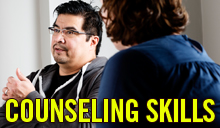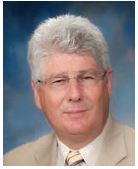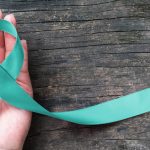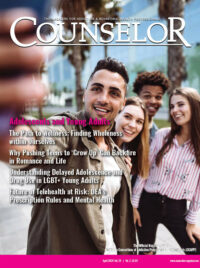LOADING
Share

When a child is born, parents construct a mental reality in which they become invincible in their powers to protect their child. Moms don superhero capes and dads throw on a suit of armor as they dream and plan for their child’s bright future. As time goes on, parents may worry about their child experimenting with drugs and alcohol. Some may even mentally rehearse their response to the discovery of marijuana in their child’s possession. If it happens, parents may naively dismiss it as a rite of passage and minimize its implications. But what if a parent’s next discovery is that their child is addicted to heroin? That is what happened in our family. It was a devastating discovery that impacted all of us. Denial was replaced with dread and “I don’t know what to do” permeated my every thought.
Discovering that a child is abusing substances takes a family on a journey out of normalcy and into a place where nothing makes sense. Parents report feeling as though everything has suddenly changed and nothing will ever be the same. There are no longer typical or predictable days. Instead, the unexpected becomes the standard and feelings of preparedness and competence are illusive. Accepting this new reality and letting go of what you’re used to is disorienting and painful.
For me, it was like entering a parallel universe in which we became the very family I had spent my entire professional career trying to help. If ever a parent needs a superhero cape or suit of armor, it is while navigating what happens to the family through addiction.
Here Be Dragons
The warning ‘Here be Dragons” was often penciled on the edges of medieval maps indicating the imminent threat of the unknown. This is the territory parents enter when they discover their child is addicted to alcohol or other drugs. It is a time of great emotional turmoil exacerbated by a high level of concern.
Trust, once the foundation of the family unit, erodes. First, there is the parents’ loss of trust in their child, as lying and stealing become frequent behaviors. Then there is the loss of trust in themselves and their ability to navigate the unfamiliar world they have just entered with their family. Sadly, there may ultimately come a loss of trust in the “system,” as waiting lists are discovered at treatment centers and insurance regulations (rather than science) dictate the level of care an addicted person receives. Additionally, parents often feel left out of the treatment and recovery processes as time goes on. At a time when parents feel most vulnerable, help is often difficult to find.
There are times when feelings of guilt won’t recede and no matter what logic your head applies to understanding this disease, your heart still whispers, “But, you were the mom,” as if this title alone should have empowered you with the ability to change the outcome. This disconnect between the head and the heart remains a challenge throughout treatment and recovery.
I have come to recognize this level of guilt as a manifestation of my belief that I was in control. If it was my fault, I must have been the one in control of the outcome. This distorted view of my involvement was eventually replaced with a healthier understanding of my complicity in the process and an acceptance that I had done the very best I could.
At a time when support is most needed, parents often feel very much alone and isolated from friends and family. As friends’ Christmas letters arrive describing children’s accomplishments, graduations, weddings, and family vacations, parents on the journey through addiction can’t help but lament how little they have in common with a “normal” family. They begin avoiding other family members and friends who may not understand or more importantly will judge and criticize. Parents retreat into themselves and this bunker mentality contributes to the isolation a parent feels.
It was a turning point for me when I found a family support group in my community. The benefits of the education and support I received there are immeasurable. I vividly remember my first night with this group. It was the first time in almost a year that I could be with a group of people without feeling totally alone. We were comrades in our struggles and eventually we became family.
The fears that assault parents most often when their child is abusing drugs are of overdose and relapse. With each newspaper article describing “the epidemic” and depicting a grieving mother holding a picture of her deceased child who overdosed, the parents of a child with an addiction are confronted with the reality that their child is in mortal danger as well. With every reminder that addiction is a chronic relapsing disease, parents wonder how they can possibly go through the anguish again and, if the next time, the outcome would be even worse and their child wouldn’t survive. Thus the loop of dread is complete and parents begin the anxiety cycle again.
As more and more hurtful things happen in the family, parents may begin to feel victimized. They never expect to have to confront their child about missing money or lost heirlooms, but this becomes a frequent occurrence, as do calls from the police reporting an arrest for theft or possession.
Looking through my early writing during this time, I was amazed by how often I had painted myself into that victim corner and wondered how this may have impacted my ability to take effective and immediate action. Over time, things do settle a bit and life takes on a new rhythm, but day-to-day emotions still vary greatly. It helped to remind myself that, “Some days you’re the wimp and some days you’re the warrior.” You inevitably have to learn to accept this variability of emotions as part of the process. However, the intensity and uncertainty of these feelings often exhausts a parent and taking definitive action can be difficult.
Entering the Fog
At a time when professionals want action, parents may feel disoriented and unsure of themselves. Next steps are seen as danger zones as confidence lessens and anxiety increases. Think of suddenly driving into a very dense fog. What is the first thing you do? You slow down. Then you begin to question. Did I slow down enough so that I will not run into the car in front of me? Did I slow down too much and the car behind me now threatens to crash into me? This is what a family experience when they first begin this journey.
As a school administrator, I was used to taking action and had confidence in my ability to do so—until addiction entered our lives. My strongest memory of my early reaction was how helpless and uncertain I felt. I knew immediate action was required to save our son, so I didn’t allow myself the luxury of feeling helpless for long, but the uncertainty of whether or not I was doing the “right” thing remained for a very long time. Very gradually, my mantra, “I don’t know what to do,” was replaced by “I can do this” and recovery began. Our son has found recovery and has built a fine life for himself. Our family is stronger and healthier than ever.
If someone had told me early on that blessings would grow out of my pain, I would not have believed them, but it’s true. Looking back over these twelve years, I am humbled by what I see. By God’s grace, I was led to those I needed and then eventually to those who needed me. Through this journey, I have met the most incredible people: a priest who taught me how to forgive myself; clinicians who showed such dedication and commitment that I had to believe, as they did, that recovery was possible. I also met other parents traveling the same journey as me, whose love and support got me through the darkest days of my life. They modeled hope. More importantly, they taught me that hope doesn’t mean all is well, it means that whatever comes, I can handle it. This remains for me, a journey of faith and tears, but now they are tears of gratitude, for we have been blessed.
Comments on Story by Dennis C. Daley, PhD
- Joan’s experiences show that addiction of a son or daughter affects the family unit as well as individual members including parents. She conveys the “emotional turmoil” commonly experienced by a parent through surprise, confusion, worry, dread, and guilt.
- Joan nicely points out that there is a disconnect between the “head” (what a parent thinks or believes and the reality of a situation) and the “heart” (the range of emotions experienced) when a child is addicted. Her belief that she was “in control” had to be abandoned and replaced with the acceptance that her son developed an addiction.
- Joan also reminds us that the two most common fears among parents with an opioid addicted child is overdose (and possible death) and relapse. Since relapses are so common, parents need to understand the relapse process and what they can do to support their loved one as well as what they cannot do.
- Perhaps most important in Joan’s story is that she received help from many people, which enabled her to get “through the darkest days of [her] life.” This led to self-forgiveness, acceptance, feeling a sense of hope, and connecting with others who shared the “darkness” of their children’s addiction and its immense impact on the family, as well as the love and support shared in mutual support programs to aid personal growth and recovery. Given that professional treatment programs offer limited services to parents when the client or patient has an addiction, mutual support programs can be lifesaving. This is a reminder of the importance of the first word in all Twelve Step recovery programs: “we” not “I.” Parents and other family members can and do recover through giving and receiving support.
About Me
Dennis C. Daley, PhD, served many roles at the University of Pittsburgh School of Medicine. He is the author of many articles, treatment manuals, books, and guides for families and children affected by addiction. He helped facilitate B2H programs at two hospitals.
Previous Article
USJT Conference Report













 Counselor Magazine is the official publication of the California Association of Addiction Programs and Professionals (CCAPP). Counselor offers online continuing education, article archives, subscription deals, and article submission guidelines. It has been serving the addiction field for more than thirty years.
Counselor Magazine is the official publication of the California Association of Addiction Programs and Professionals (CCAPP). Counselor offers online continuing education, article archives, subscription deals, and article submission guidelines. It has been serving the addiction field for more than thirty years.